
In the U.S., 16,000 children are diagnosed with cancer each year, and more children die from cancer than any other disease.
Four Diamonds’ mission is to conquer childhood cancer by assisting kids treated at Penn State Health Children’s Hospital and their families through superior care, comprehensive support and innovative research.
Four Diamonds believes in a holistic approach to childhood cancer treatment. We treat the disease, but we also care for the child’s well-being and their family.
Four Diamonds provides comprehensive support to children and their families by paying for care and treatment not covered by insurance, as well as additional expenses that disrupt the welfare of the children. Thanks to generous donors, Four Diamonds has been able to assist 100% of eligible childhood cancer patients treated at Penn State Health Children’s Hospital.
Four Diamonds makes it possible for more than 30 specialty care providers to exclusively serve the physical, mental, emotional and spiritual needs of our patients and their families.
These care providers include child life specialists, social workers, music therapists, nurse specialists, a clinical nutritionist, a psychologist, a pharmacist, a genetics counselor, a neuropsychologist and a chaplain – just to name a few.
“It almost seems like we have a caring extended family that includes social workers, child life specialists, pediatric oncology doctors and nurses, music therapists, etc. All of these individuals should be proud of the work they do. For my family, it was their love and support that helped us through Katherine’s treatment.”
– The Katherine Johnson Family
 CHILD LIFE
CHILD LIFEOur child life specialists help children confront fears about their illness. Through the use of play therapy and distraction techniques, we work with patients and families to help them find ways to cope with the life changing effects of childhood cancer.
 CLINICAL NUTRITION
CLINICAL NUTRITIONOur clinical nutritionist is a valuable resource to families, assisting them with nutrition information that will keep their child as healthy as possible. Nutritional care also helps to reduce the side effects of therapy.
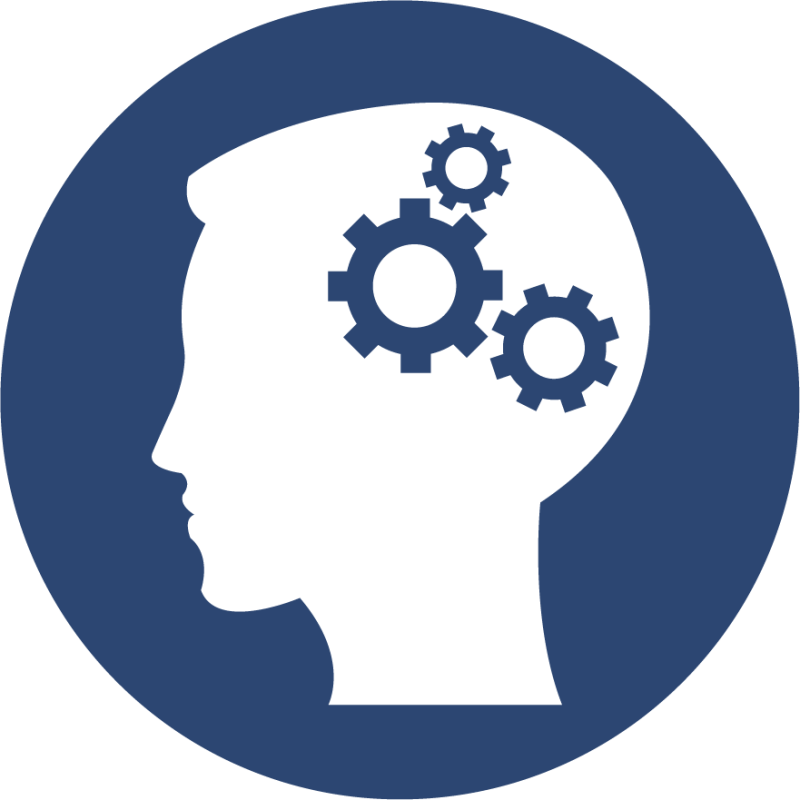 CLINICAL PSYCHOLOGY
CLINICAL PSYCHOLOGYOur clinical psychologist helps patients and families with the unique psychological challenges presented by childhood cancer. Our services include: individual and family therapy, coping skills, relaxation techniques, bereavement services and referrals for psychological testing.
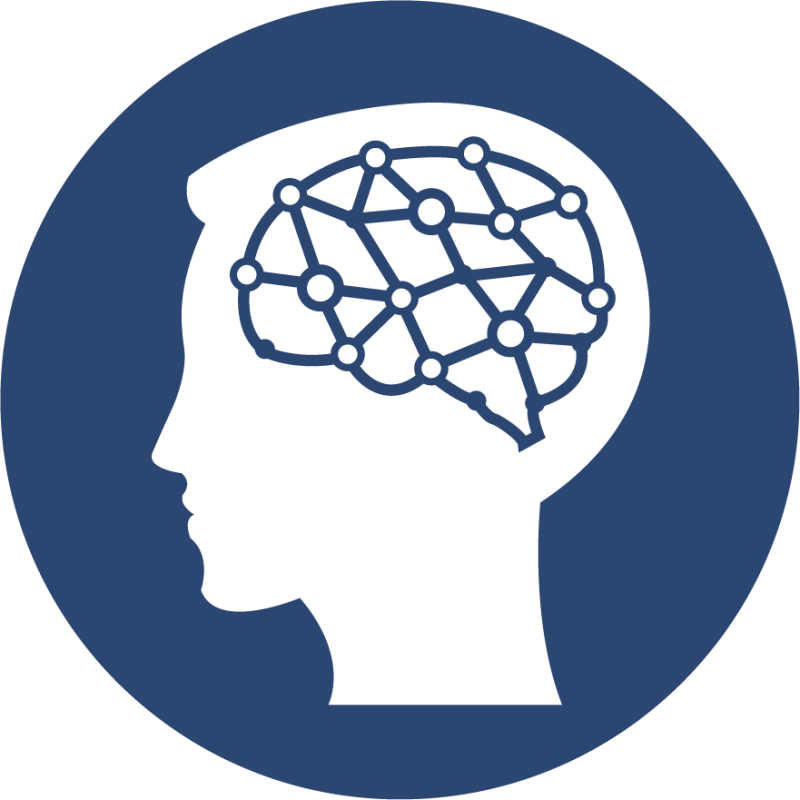 NEUROPSYCHOLOGY
NEUROPSYCHOLOGYOur pediatric neuropsychologist offers help to children, adolescents and young adults who may be struggling with cognitive impairment related to their medical diagnosis or treatments. An evaluation takes place to assess cognitive strengths and weaknesses in patients, in order to determine appropriate treatment interventions in the areas of education, daily functioning and emotional and behavioral needs.
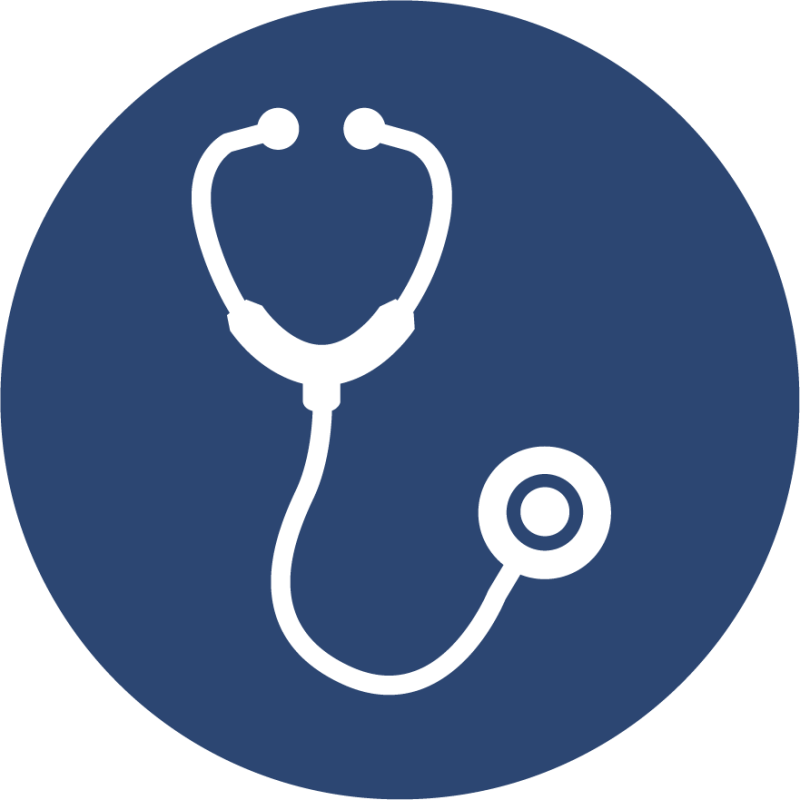 NURSE SPECIALISTS
NURSE SPECIALISTSOur pediatric oncology nurse specialists work exclusively with pediatric oncology patients through all stages of treatment, providing outpatient care, support and education. They are also skilled in the treatment protocols necessary for the long-term care of children, which allows our team to provide pediatric oncology patients with the highest quality of care possible.
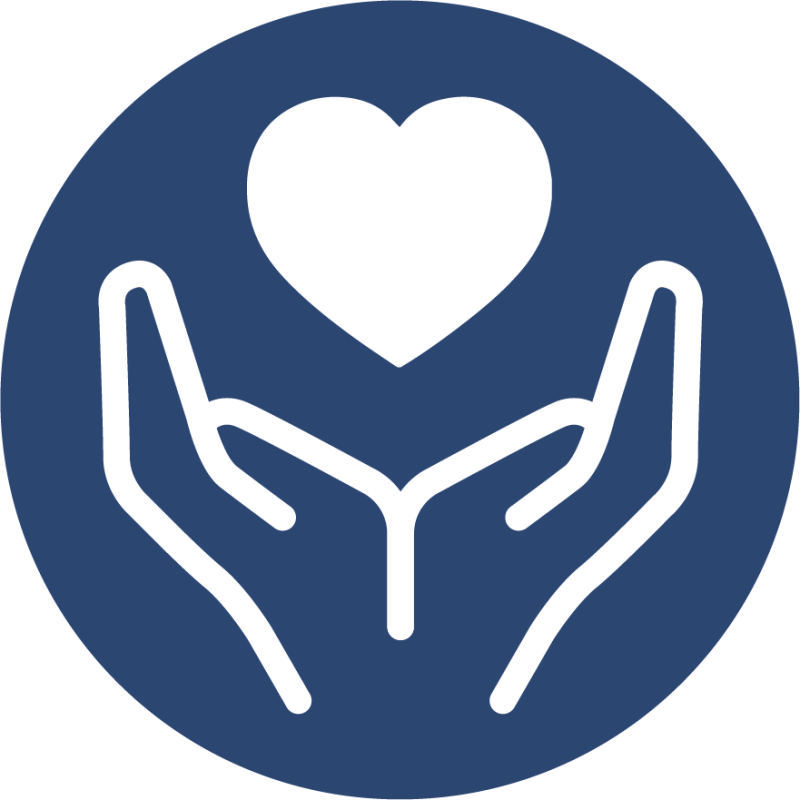 SOCIAL WORK
SOCIAL WORKOur social workers support families with their adjustment from diagnosis, into treatment and through survivorship. Together we serve as advocates for each family, addressing practical concerns including financial assistance, school needs, employment concerns, transportation assistance and healthy coping.
 MUSIC THERAPY
MUSIC THERAPYOur music therapists use therapeutic interventions, including playing instruments, singing, listening and song writing to promote adjustment to the hospital setting. These experiences are designed to help manage stress, alleviate pain, express feelings, improve communication, foster social interaction and promote physical rehabilitation.
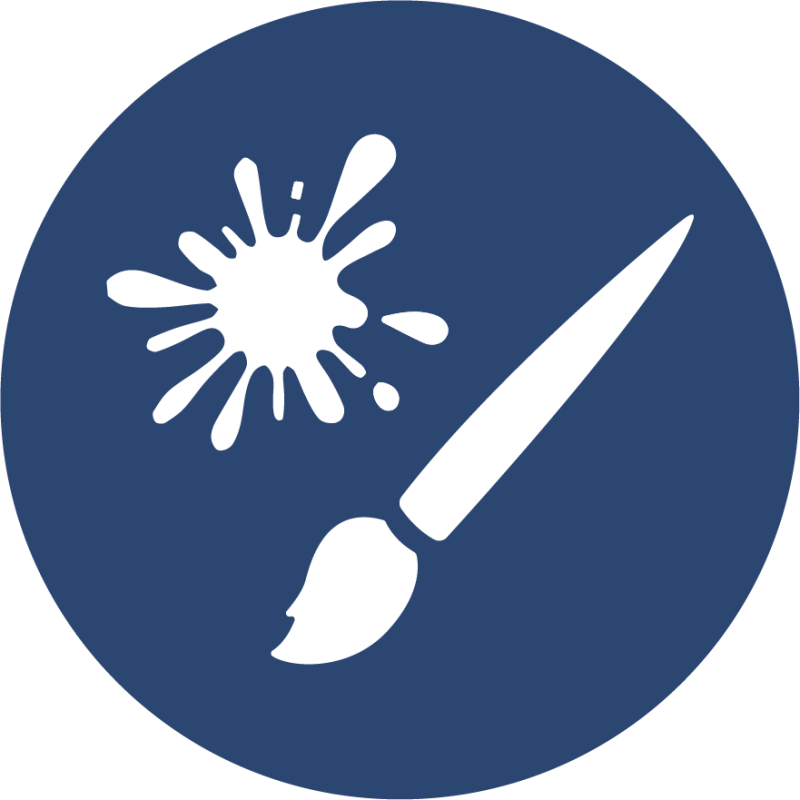 ART THERAPY
ART THERAPYArt therapy empowers patients to use art to help in their healing process. Art therapy works to engage the mind and body in order to: support coping with hospital experiences, provide a safe outlet for emotional expression, promote feelings of control and instill resiliency and relaxation.
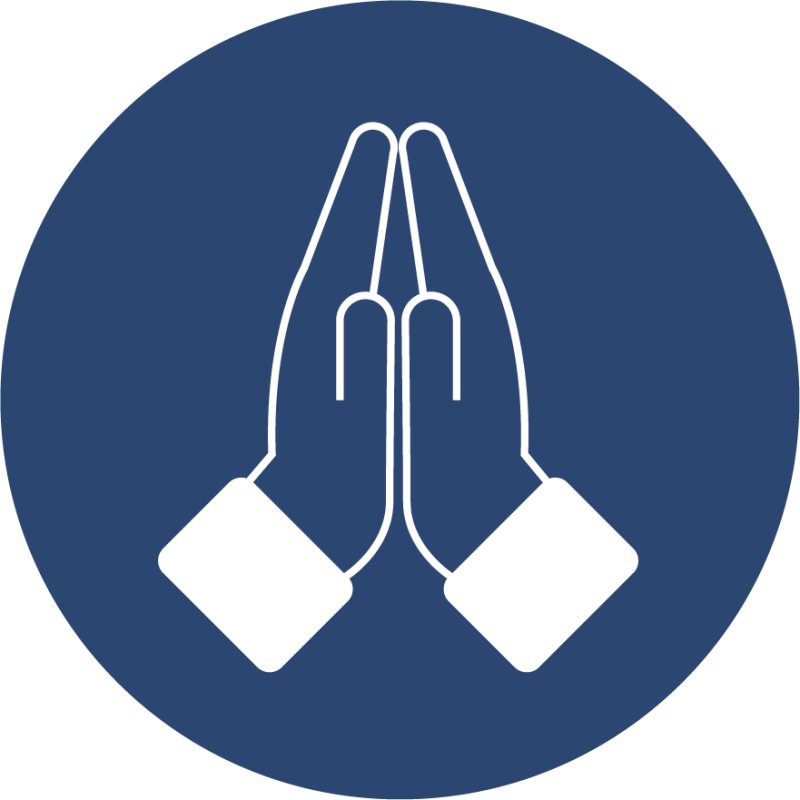 PASTORAL CARE
PASTORAL CAREOur chaplain integrates the spiritual needs of patients and their families into the plan of care, and notifies the entire team about family faith practices and how their faith may impact medical treatment.
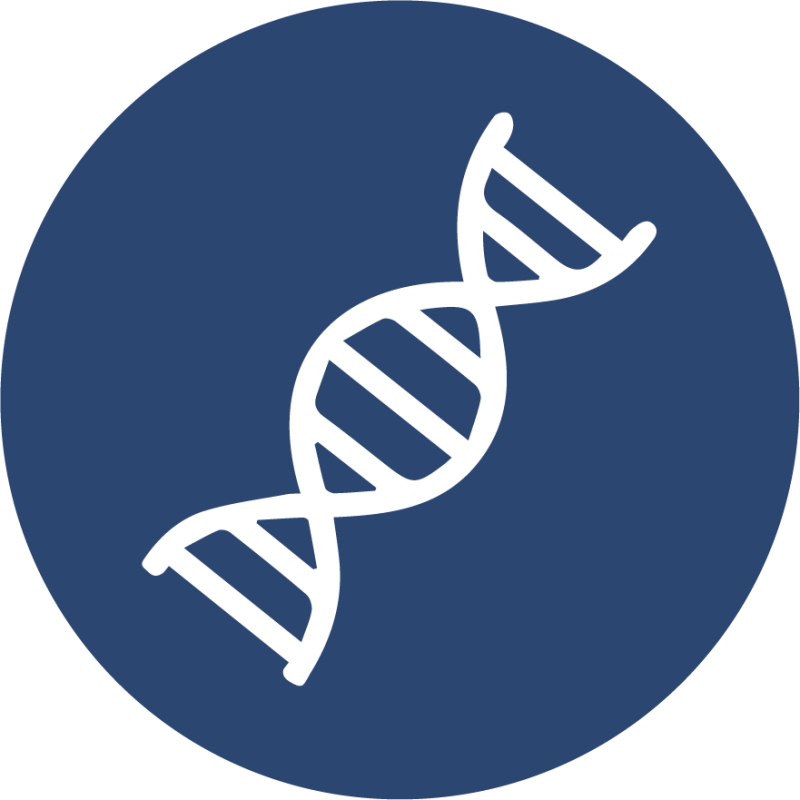 GENETIC COUNSELING
GENETIC COUNSELINGOur genetic counselors specialize in the discovery and explanation of a child’s personal and family history as it relates to their diagnosis of cancer. They are available to listen and understand what patients and families are going through to help them make decisions. Optional genetic testing may answer why a child developed cancer, help screen for other cancers, guide treatment strategies and identify other family members at risk for cancer.
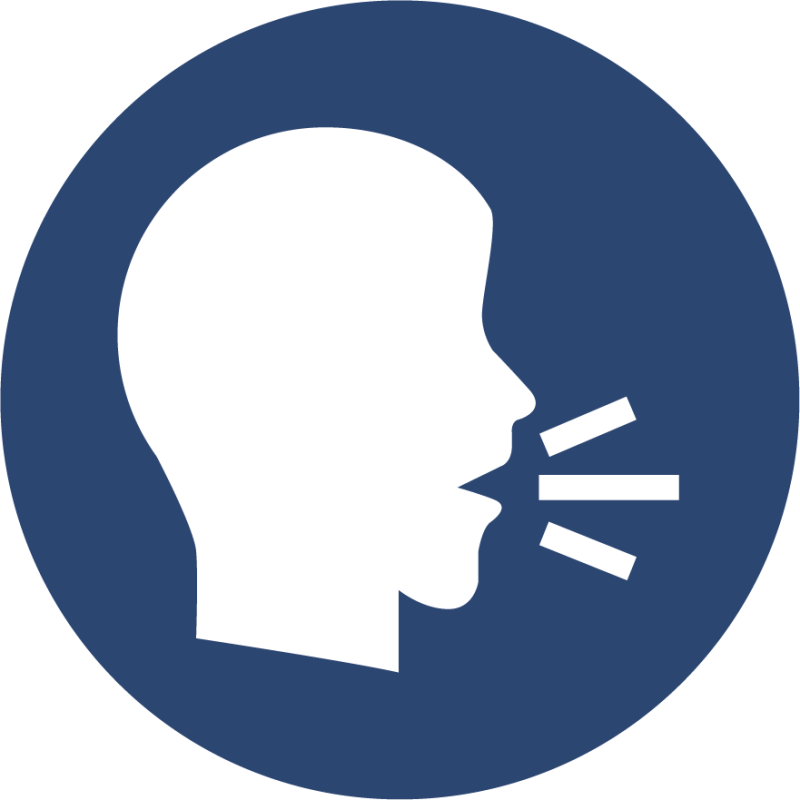 TRANSLATION SERVICES
TRANSLATION SERVICESOur medical interpreter works solely in the pediatric hematology-oncology unit. This individual specializes in Spanish to English translations, acting as a voice for our Spanish speaking children and families and ensuring they receive world-class care and support.
 EDUCATION
EDUCATIONEducators, provided by the Capital Area Intermediate Unit, are available for all school-age children. Services include direct instruction and assisting families and schools with modifications in the academic environment.
A psychosocial program development coordinator joined the team to design and implement programs to support patients and families through the journey of cancer-related treatment, survivorship and bereavement. Functioning as part of a multidisciplinary healthcare team, the program development coordinator is charged with working effectively with nurses, physicians, social workers, music therapists, Child Life specialists, chaplains, psychologists, patients and family members to expand current psychosocial services, including support for adolescents and young adults, bereaved families and survivors.
This growing population of long-term childhood cancer survivors is at risk for adverse effects related to their cancer and subsequent therapy. These adverse effects, known as late effects, may not become apparent until years later. Approximately two-thirds of childhood cancer survivors experience at least one late effect, many of which are severe or life threatening.
The mission of the Penn State Health Children’s Hospital Childhood Cancer Survivorship Program is to educate survivors about the possible late effects that may occur as a result of the therapy they received and monitor them closely for these effects.
Adolescent and young adult (AYA) refers to someone diagnosed with cancer between the ages of 15 and 39. It’s an age range of cancer patients with unique needs, which have been overlooked by many, even professionals, in the oncology community. Juggling cancer care with school, work, launching one’s independence, new relationships and young families are some of the hallmarks of this age group.
Four Diamonds and Penn State Health Children’s Hospital are invested in this community and continue to create resources and programs to meet their unique needs. Learn more by clicking here.
Survivors meet with a physician, the survivorship clinic coordinator and a social worker, all of whom specialize in late effects of childhood cancer. Visits include:
For more information, contact Meredith Noel, a Four Diamonds social worker in the Survivorship Program, at mnoel3@pennstatehealth.psu.edu.


The support of Four Diamonds has been critical to development of Penn State Health’s nationally and internationally recognized research programs, which are leading the fight to find better treatments and cures for all childhood cancers.
Thanks to the community’s generous support, Four Diamonds scientists and doctors can accelerate our work to:
Conduct clinical trials that leads to new treatments and drugs;
Offer treatment and hope to patients whose disease is not responding to therapy;
Foster collaboration with doctors and scientists around the world; and
Train researchers so we can continue to fight for the next generation
Founded in 1996, the Four Diamonds Pediatric Cancer Research Center is creating new knowledge to save the lives of children with cancer.
Our team of more than 90 doctors and scientists at Penn State College of Medicine conduct the full spectrum of cancer research. This research begins with learning more about how cancer forms and what can be done to either destroy or reprogram cancer cells.
Having a better understanding of how cancer works will help us develop new, more effective treatments, which we are able to then test by conducting Phase I, II, and III clinical trials.
Learn more about Four Diamonds’ research milestones in our latest Impact Report.
An estimated 16,000 children in the U.S. are diagnosed with cancer each year – that’s about 1 child every 36 minutes.
Worldwide, a child is diagnosed with cancer every two minutes.
Thanks to research, on average more than 80% of kids with cancer will survive. For some types of cancer, progress has been limited.
Children tend to respond better to chemotherapy than adults. However, they are more likely to be negatively affected by radiation therapy. Both of these therapies, in addition to surgery for cancer treatment, are likely to lead to long term side effects in children.
Currently, there are more than 420,000 survivors of childhood cancer in the U.S., with that number expected to reach 500,000 by 2020.
Only 4% of National Institutes of Health (NIH) research funding is solely dedicated to childhood cancer. The NIH is the country’s largest funder of medical research.
A key factor in our research is the Four Diamonds Pediatric Cancer Research Center’s membership in five national and international research consortiums. Research consortia allow research scientists and doctors from around the world to combine their efforts to understand the causes of cancer and find more effective treatments for the children we care for.
By sharing our knowledge and discoveries with our partner consortiums, the Four Diamonds Pediatric Cancer Research Center not only improves treatment for cancer patients at Penn State Health Children’s Hospital, but also benefits children and their families nationally and globally.
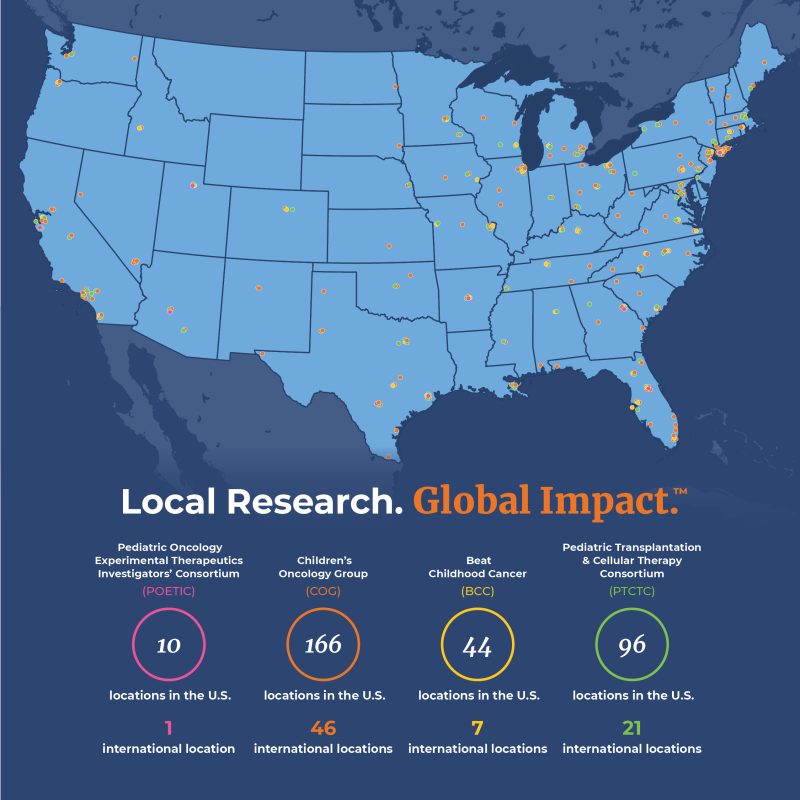
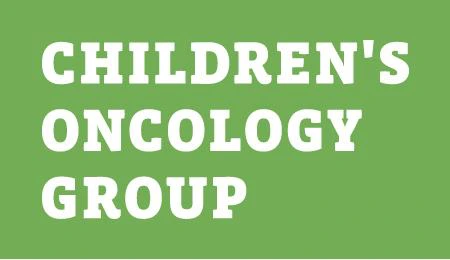 CHILDREN’S ONCOLOGY GROUP (COG)
CHILDREN’S ONCOLOGY GROUP (COG)a network of more than 200 leading institutions and 9,000 experts that provide state-of-the-art upfront therapies for many pediatric cancers.
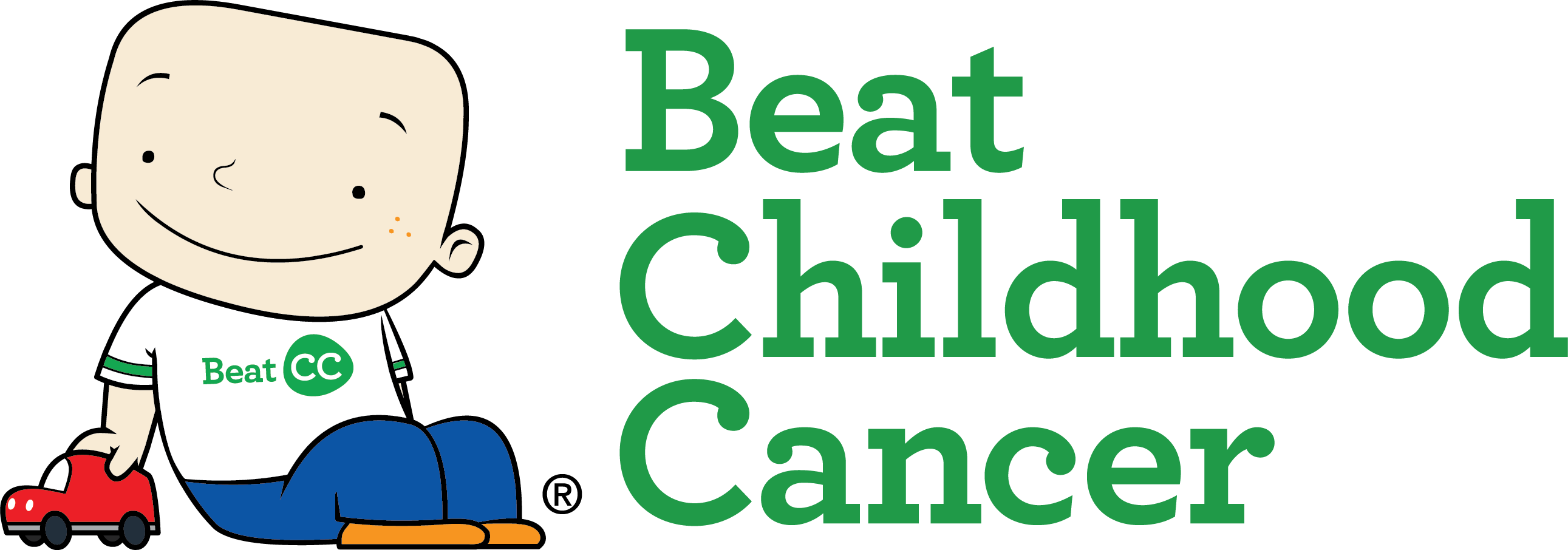 BEAT CHILDHOOD CANCER
BEAT CHILDHOOD CANCERa group of 40+ research centers and children’s hospitals that offer an international network of childhood cancer clinical trials. Trials are based on research from investigators developing novel therapies/technologies.
 PEDIATRIC TRANSPLANTATION & CELLULAR THERAPY CONSORTIUM (PTCTC)
PEDIATRIC TRANSPLANTATION & CELLULAR THERAPY CONSORTIUM (PTCTC)a network of 100+ pediatric centers that is the largest clinical trials group focused exclusively on blood and marrow transplants for children and adolescents.
 PEDIATRIC ONCOLOGY EXPERIMENTAL THERAPEUTICS INVESTIGATORS’ CONSORTIUM (POETIC)
PEDIATRIC ONCOLOGY EXPERIMENTAL THERAPEUTICS INVESTIGATORS’ CONSORTIUM (POETIC) a network of ten leading academic medical centers, all working together to provide the collaborative and research strength needed to complete intensive Phase I and Phase II clinical trials of novel treatments for cancer that has returned or isn’t responding well.
a collaborative research model that unites multiple research centers with the goal of expediting the most advanced treatments in the shortest time frame possible in pediatric oncology, hematology and bone marrow transplant. Through this nationwide effort, the goal is to contribute to the development of promising new therapies in pediatric disorders such as childhood cancer, blood disorders, stem cell therapies and other cellular therapies.
“MEMBERSHIP IN NATIONAL CLINICAL TRIAL GROUPS, RECRUITMENT OF WORLD CLASS FACULTY, AND THE RESULTING RESEARCH PROGRESS WOULD NOT BE POSSIBLE WITHOUT FOUR DIAMONDS.”
– DR. LISA MCGREGOR – CLINICAL DIRECTOR, DIVISION OF PEDIATRIC HEMATOLOGY/ONCOLOGY